Seeking A Better Country Than Middle Earth
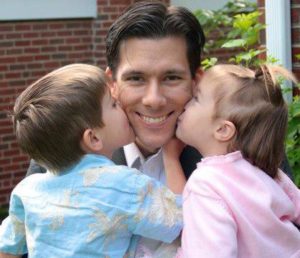 Since I haven’t had a chance to see The Hobbit yet, I decided to bring in someone who has–my nephew Paul D. Miller. He wrote a review of the movie for the website Patheos, specifically for their blog Schaeffer’s Ghost, which provides evangelical commentary on books and films: “We understand it to be part of our worship of God to examine the world around us, to discern what is true, noble, pure, and even ‘lovely,’ and to dwell on these things. That includes, we think, the cultural output of the world we live in.”
Since I haven’t had a chance to see The Hobbit yet, I decided to bring in someone who has–my nephew Paul D. Miller. He wrote a review of the movie for the website Patheos, specifically for their blog Schaeffer’s Ghost, which provides evangelical commentary on books and films: “We understand it to be part of our worship of God to examine the world around us, to discern what is true, noble, pure, and even ‘lovely,’ and to dwell on these things. That includes, we think, the cultural output of the world we live in.”
Paul D. Miller is an Assistant Professor of International Security Studies at the National Defense University in Washington, D.C. He received his PhD from Georgetown and his Masters Degree from Harvard. His writing has appeared in Books and Culture, Foreign Affairs, the Washington Post, The City, and elsewhere.
And now, used by permission, Paul’s Review of The Hobbit: An Unexpected Journey, directed by Peter Jackson.
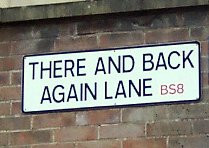 I previously blogged about the surprising darkness and pessimism in J.R.R. Tolkien’s book The Hobbit. That book is often mistakenly called a children’s book, and even though there is nothing childlike about its tales of genocidal war and cynical realpolitik, it will continue to be considered beloved work of fiction no matter how it is labeled. However on second reading I found it to be uneven, episodic, and featuring thin characters with an abrupt end to the dragon.
I previously blogged about the surprising darkness and pessimism in J.R.R. Tolkien’s book The Hobbit. That book is often mistakenly called a children’s book, and even though there is nothing childlike about its tales of genocidal war and cynical realpolitik, it will continue to be considered beloved work of fiction no matter how it is labeled. However on second reading I found it to be uneven, episodic, and featuring thin characters with an abrupt end to the dragon.
Watching Peter Jackson interpret J.R.R. Tolkien is like watching a master jazz impresario play Beethoven. The original is classic; the interpretation as a new work is equally brilliant. Jackson’s new film, The Hobbit: An Unexpected Journey (the first in a projected trilogy) departs from Tolkien but gains from the divergence. Jackson’s Hobbit is a splendid film.
The film follows (as anyone not hiding in a hole knows…and, come to think of it, even those in holes ought to know too) Bilbo Baggins, a Hobbit of Bag End, on his unexpected adventure with Gandalf the wizard, Thorin Oakenshield the dethroned dwarf king, and his band of a dozen dispossessed comrades on their quest to slay a dragon and retake their homeland.
In Tolkien’s original, the dwarves are driven by greed, vengeance, and honor. They want their gold and they want to kill the dragon—and, as an afterthought, rebuild their lost kingdom. In the movie, Jackson wisely foregrounds the political motive, turning The Hobbit into a story of national liberation by an aggrieved and stateless people. Thorin utters “We must seize this chance to retake our homeland!” or some variation of it a dozen times or more during the movie. These dwarves are soldiers, not mercenaries; Jackson downplays the commercial motive–even suggesting that Thorin’s grandfather’s greed presaged his downfall.
Jackson’s Hobbit is thus a story of returning to a lost homeland. The dwarves are in the position of the heroes of faith of Hebrews 11:13-16. “They were strangers and exiles on the earth…they are seeking a homeland…they desire a better country.” Some of the more poignant moments in the film emerge from the dwarves’ sense of homelessness, of lacking roots, of not belonging. Home is a place of rest, belonging, and family. To lack a home is to be restless and alone—a universal experience that the Bible affirms is true and rooted in our spiritual homelessness in this world. For Christians, the only true home is heaven.
The other effective moments in the film arise from Biblo finding the courage and purpose to join and stick with the quest. Here Jackson is true to the spirit of the book, as Biblo’s growth is central to Tolkien’s original. There is, however, a difference: Jackson front-loads a few of Bilbo’s major crises—necessarily so, since he only handles the first third or half of the journey. In doing so, he actually improves on the book.
In the book, Bilbo pretty much stumbles into the quest with no moment of decision. The reader may be forgiven for thinking that Bilbo is on the adventure simply to please the requirements of the plot. The moment he shows agency comes later in the mountains and in Mirkwood. In the film, Biblo makes a very conscious choice to join the dwarves (after initially refusing to), and as a result we get a much better sense of why he does so and what it costs him. This yields the film’s best lines. Late in the adventure the dwarves complain that he is homesick and not really committed to the quest. He admits to missing home, and then says, “That’s why I’m helping you. Because you have no home. And I’m going to help you get it back.”
I’m stretching a bit here, but Biblo reminded me faintly of Ruth. Ruth was a Moabitess whose mother-in-law, Naomi, was an Israelite. After their husbands die, Naomi embarks on a journey back home to Israel. Ruth chooses to accompany her. She could have stayed home in Moab, but chooses instead to make a new home with Naomi. “For where you go I will go, and where you lodge I will lodge. Your people shall be my people, and your God my God. Where you die I will die, and there will I be buried. May the Lord do so to me and more also if anything but death parts me from you,” (Ruth 1:16-17).
Biblo doesn’t quite go that far. But he leaves home and risks his life to help Thorin and the others find a new home—a magnificent picture of loving one’s neighbor. His growing loyalty and friendship to the dwarves is the best part of the film.
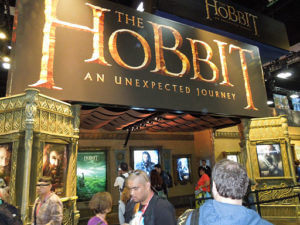 If you liked the Lord of the Rings trilogy, you will like this movie. It isn’t quite as well paced (the first hour drags a bit, and the movie feels like it has two endings). Don’t expect pure fidelity to the book: Jackson takes almost as many liberties as his did with The Two Towers. And, if you want to catch all the nuances, it will help if you read Appendix A.III to Lord of the Rings, from which Jackson draws out (and embellishes upon) some sub-plots.
If you liked the Lord of the Rings trilogy, you will like this movie. It isn’t quite as well paced (the first hour drags a bit, and the movie feels like it has two endings). Don’t expect pure fidelity to the book: Jackson takes almost as many liberties as his did with The Two Towers. And, if you want to catch all the nuances, it will help if you read Appendix A.III to Lord of the Rings, from which Jackson draws out (and embellishes upon) some sub-plots.
Finally, on a technical note, I saw the film in the full 3D, 48 frames-per-second format. The 3D didn’t do much for me, but the 48 fps was gorgeous. Find a showing in this format if you can.
































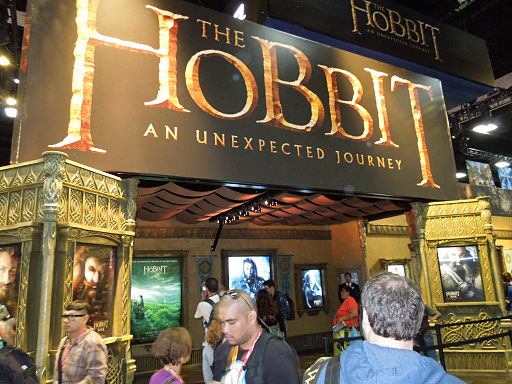

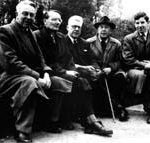







I actually think he might have sneaked a few pages from Unfinished Tales too… especially regarding the Istari and the White Council. But maybe that’s just me.
I haven’t read Unfinished Tales or seen the movie, so I’ll take your word for it Galadriel. I’ve been looking forward to seeing the movie and Paul’s review only makes my anticipation greater. It always seems iffy when movie makers take on the assignment to produce a classic book. Look what happened to Narnia. The fact that Peter Jackson did so well with Lord of the Rings certainly gave me hope that he’d pull off The Hobbit, too, but then there’s the idea that it would be two movies, which this year changed to three. So the questions grew.
Truly, reading what Paul says makes me so excited! I wonder what others who saw it think.
Becky
Becky, definitely see the film. I also recommend seeing it in the standard format. Regardless of one’s views (ha!) on 3D, and whether the high-frame-rate truly does mess with the look of realism (as some critics have said), I think it’s best not to let even the stigma of a different film format interfere with the experience. My wife and I anticipate seeing the new format for ourselves, but only now that we have seen the “regular” film and enjoyed it immensely.
Most people who fault the adaptation seem to imply the film should have pretended that neither the Lord of the Rings books or film versions exist. I respectfully disagree: there is no way to see the story of The Hobbit without also referring to Tolkien’s greater universe. (More on this in my reply to LadyArin.)
Speaking of which: no, they couldn’t legally use Unfinished Tales, only The Appendices to The Return of the King, to which Jackson and Co. already have rights.
I loved it. It wasn’t what i would call a good adaption, but it was certainly a good film.
[spoilers ahead!]
The book is clearly written as a children’s story, “genocidal war and cynical realpolitik” aside. How well that would translate to a movie isn’t something i’m going to speculate on, but it certainly wouldn’t translate well as the prelude to The Lord of the Rings films, and i don’t blame Peter Jackson for choosing the route he did. I would have a hard time picturing a director like him doing a comedic children’s adventure movie, anyway.
I think, on the whole, i would agree with Paul that the film benefits from its deviations. Bilbo’s motive for helping the Dwarves is so hobbit-like: not for honor, or glory, or great deeds, or money, but because they have no home. Thorin’s quest is more relatable than pure greed, and the Dwarves as individuals are more interesting.
I’m not sold on three movies, i wish Elrond didn’t always look like a semi-jerk, Azog’s expanded role doesn’t seem necessary, and there are numerous bits i wish they’d kept in, but on the whole, i loved it, and i want to see it again.
Sounds like everyone shares the view that it was a good film — except some critics who felt they were enabling their previous fantasy enjoyments by saying it was more-Serious.
However, the adaptation was a solid one, with some seeming “changes” either:
Yes, but as I noted above, it’s impossible to isolate that original intent from what Tolkien himself later wrote (and also what the filmmakers have already done). Given those limitations, I was impressed by the whimsical, fairy-tale tone of The Hobbit, with just enough other elements to connect it to The Lord of the Rings. They even worked in a certain line about “the game of golf”! Even better: Bilbo repeating a very famous introduction.
Agreed. This is an organic “addition,” based not on modern-import notions, but the heart of the book and the nature of Hobbits. This is why I didn’t mind so much Bilbo’s spontaneous, “Tookish” change of mind, rather than being (as in the book) pressured by Gandalf.
Did you notice that some viewers kept saying “the Dwarves were underdeveloped”? Some even said, “the book developed them better”! I’m not sure which book they read. If people complain about the Dwarves’ “extra” nature, they must first raise the complaint against Tolkien. As I’d hoped, the film showed all the Dwarves as delightful, distinct individuals.
Even in the book Thorin’s and the party’s true motivations were not simply greed. Tolkien drew this out later, in describing why the Dwarves undertook their quest, and especially why Gandalf backed it: to block a possible advance of evil in the North.
It could be argued that the White Council’s action, along with the Dwarves’ success and the Battle of Five Armies, prevented Sauron from doing even worse things. What they did drove him out of his Dol Guldur fortress and into Mordor, forced to lie dormant until the finding of the Ring finally gave him a chance at reclaiming that ultimate power.
Considering the expanded adaptation — we got to spend 45 whole minutes in The Shire and Bag End! — and the fact that film 1 literally covers a third of the book, I’m sold.
As for Elrond, he actually looked happier: how he is when all Middle-earth is not at stake.
I was wondering how they would turn this into three films, but after seeing it, I can see how and I like the direction they are going. This film is only the first six chapters of the book and I thought they were able to include more material and not worry about pacing as much.
<i>The Hobbit</i> (the book) did have a different feel than the later LOTR, probably because JRRT did write it for kids (kids lit was apparently quite different back then). However, virtually all of its story is an important prologue for LOTR. So I was pleased the movie brings it more in line to what comes later as far as look and feel go. Still, you have these dwarves going through a lot of trials and coming out unscathed.
Mining the appendicies to bring out more backstory for the dwarves was a wise path to take. Two reasons for this: The dwarves are obviously central to this book and their part was largely left out of the LOTR films. We’ve already learned a lot of the races of men and elves in the first three films (we will be seeing more of them in the rest of Hobbit films, especially 3). We’re also seeing the orcs as having leadership and some semblance of being a race or nation of sorts.
After the Hobbit is completed, I hope they consider <i>The Children of Hurin</i> to adapt. Hopefully it won’t be another nine years.
I love this aspect of the film. It’s what makes Tolkien so timeless — and this aspect of the adaptation respectful of the book. After all, only when Tolkien had learned more about Middle-earth and the reasons for the Dwarves’ quest would he have himself said something like: It’s not really about getting the gold, but recovering an anestral homeland.
As many SF readers know, I always like to clarify statements like this.
Earth will be our home — but only after Christ has resurrected His creation and purged it of all the effects of sin. That will make the New Heavens and New Earth (Isaiah 65; Rev. 21). So in one way, Heaven is our only home, yet in another way, the present Heaven is not our home, at least not until God’s dwelling is with men (Rev. 21:1), and as the final verse of the hymn “This Is My Father’s World” says, “and heaven and earth be one.”
In the movie, Jackson wisely foregrounds the political motive, turning The Hobbit into a story of national liberation by an aggrieved and stateless people.
I don’t think this is a good idea. Greed is the entire focus of the Hobbit. Thorin’s greed turns him into a mini-Smaug, willing to bury himself under the mountain rather than give a fair share to those that help him. Gollum’s greed over his precious is what confined him underneath in a dank cave sea, before the ring was expanded on in LOTR. Trying to burgle from the cave trolls causes no end of problems. The irony of the book is that the least greedy person is the professional burglar, Bilbo. Trying to ignore this is going to make the movie ridiculous when it comes to things like the Arkenstone.
Bilbo’s “I’m helping you to get it back” strikes me as ridiculous. The point of him being there is to do more than that. Once Thorin comes into his own, Bilbo robs him of one of the most prized thing he owns, the Arkenstone, in order to force him to concede. Bilbo is there to save the dwarves from their folly, not be their cheerleader.
Going to be an interesting second and third movies, no doubt. Ugh.